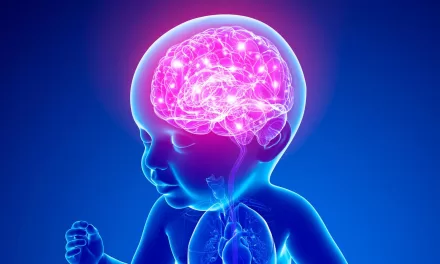A new study has found a significant link between maternal serum folate levels during early to mid-pregnancy and the risk of congenital heart disease (CHD) in offspring. Researchers uncovered a U-shaped association, revealing that both low and high maternal folate levels are tied to an increased risk of CHD. Vitamin B12 deficiency and elevated homocysteine levels further amplify this risk, highlighting the delicate balance required for optimal maternal health.
Study Overview
The research, led by Dr. Yanji Qu and Dr. Jie Li from the Global Health Research Center at Guangdong Provincial People’s Hospital, investigated 129 participants with CHD and 516 matched controls from the same hospital between 2015 and 2018. Maternal serum folate, vitamin B12, and homocysteine levels were measured at approximately 16 weeks of gestation. CHD diagnosis was confirmed via echocardiography.
Participants were matched by maternal age at a ratio of 1:4, and other factors, such as folic acid supplementation, maternal education, occupation, parity, pregnancy complications, and genetic polymorphisms affecting folate metabolism, were considered. Conditional logistic regression and sensitivity analyses were applied to evaluate the associations.
Key Findings
A clear U-shaped relationship between maternal serum folate levels and CHD risk emerged from the data. Both deficient and elevated folate levels were associated with a higher likelihood of CHD in offspring:
- Low folate levels were linked to an adjusted odds ratio (aOR) of 3.09 (95% CI, 1.88-5.08), meaning mothers with insufficient folate had a significantly higher chance of having a child with CHD.
- High folate levels were also risky, with an aOR of 1.81 (95% CI, 1.07-3.06).
When assessed using World Health Organization criteria, maternal folate deficiency (<5.9 ng/mL) was associated with an aOR of 18.97 (95% CI, 3.87-93.11), while elevated folate levels (>20 ng/mL) had an aOR of 5.71 (95% CI, 2.72-11.98).
Vitamin B12 deficiency and elevated homocysteine levels further exacerbated the risk, illustrating the importance of maintaining appropriate levels of these nutrients during pregnancy. According to the researchers, homocysteine likely plays a key role as a central mediator, linking folate and vitamin B12 deficiencies to the increased risk of CHD.
Clinical Implications
“Insufficient folate and vitamin B12 can lead to elevated homocysteine levels, which are harmful to the cardiovascular system. Homocysteine may act as a central mediator between deficiencies in folate and vitamin B12 and CHD risk. Folate also plays a role beyond homocysteine mediation, supporting placental implantation and vascular remodeling,” the authors noted.
This study highlights the importance of balanced folate intake during pregnancy, as both insufficient and excessive levels can pose significant risks. The findings suggest that maternal nutrition plays a crucial role in fetal cardiovascular development and that proper monitoring of folate and vitamin B12 levels may be key to preventing CHD.
Study Limitations and Future Research
While the study offers valuable insights, it does have limitations. Folate levels were measured at a single time point, potentially missing variations that occur before conception or during the early postconception period. Additionally, the study was conducted at a single cardiac referral center in Southern China, limiting its generalizability to other populations. The researchers also noted the absence of dietary intake data, which may introduce biases related to folate supplementation and consumption.
Conclusion
The U-shaped association between maternal folate levels and CHD risk underscores the importance of achieving optimal nutrient levels during pregnancy. This study, published in JAMA Network Open on October 10, provides a compelling case for careful monitoring of folate, vitamin B12, and homocysteine levels in expectant mothers to minimize the risk of congenital heart disease in their offspring.
The research opens the door for further investigation into the complex interactions between maternal nutrition and fetal heart development, as well as the potential for more targeted nutritional guidelines during pregnancy.












